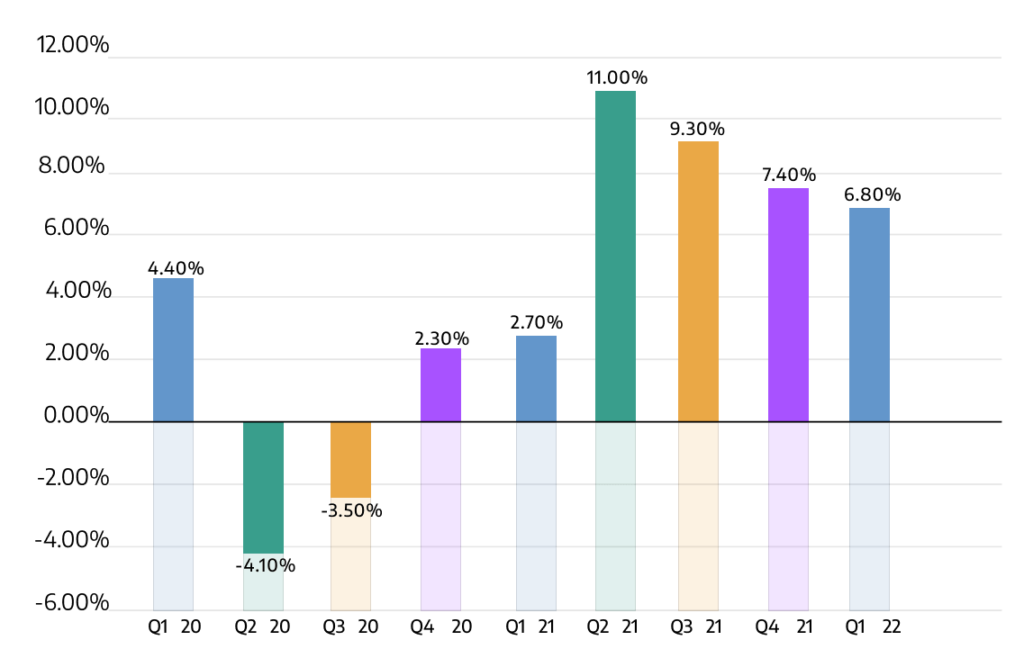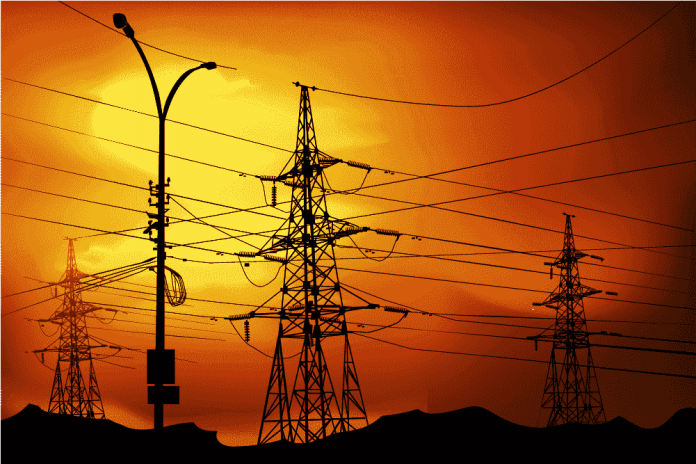Nigeria
The Federal Accounts Allocation Committee (FAAC) disbursed ₦680.8 billion to Federal, State, and Local governments. This represents a 29.9% decline from the peak period of July 2021 where ₦970.6 billion was disbursed. The decline is a result of the fiscal challenges facing Nigeria as crude oil revenue continues to plunge.
According to figures released by the Nigerian National Petroleum Company Limited (NNPC), the amount spent as subsidy on Premium Motor Spirit (PMS), popularly called petrol, and on refinery rehabilitation between January and May this year amounts to ₦1.3 trillion. Interestingly, only ₦27.3 billion has been spent on refinery rehabilitation with the balance going on PMS subsidy payments. NNPC disclosed this in its latest presentation to the Federation Account Allocation Committee meeting for June 2022.
The Federal Government (FG) has announced the takeover of three non-performing electricity distribution companies, Kano Disco, Kaduna Disco and Benin Disco, by Fidelity Bank Plc, due to the poor financial performance of the company.
The Bureau of Public Enterprises (BPE) has obtained approval from the Nigerian Electricity Regulatory Commission (NERC) to appoint an interim managing director for the distressed power firm Ibadan Disco amidst take-over actions by the Asset Management Corporation of Nigeria (AMCON).
Ghana
The Ghanaian government announced its decision to seek $1.5 billion in financial aid from the International Monetary Fund (IMF) to improve the credibility of the Monetary Policy and gain access to the capital market. The aid will also provide the needed buffers that would help restore macroeconomic stability and debt sustainability.
Ivory Coast
Moody’s Rating moved Ivory Coast’s outlook to Positive from Stable. The rating agency also reaffirmed Foreign and Local Issuer Ratings at Ba3.
On the other hand, Fitch Rating affirmed Ivory Coast Long Term Foreign Currency Issuer default at BB- while the outlook remained Stable.
Mali
The Presidents of the West African regional blocs have agreed to lift the economic and financial sanctions on Mali after the nation’s military leaders agreed to a return to democracy in 2024. The country’s presidential election will hold in March 2024.
Moody has confirmed the long-term foreign and local currency issuer ratings of the Malian government at Caa2 and changed the outlook to Negative from ratings under review.
According to Reuters, the recent downpour in most cocoa-growing regions will boost the development of the next October-to-March main crop.
The IMF is projecting a slowdown in Ivory Coast’s economic growth to 6% in 2022 from 7% the prior year. This has been attributed to the impact of external economic shocks including expectations of subdued global demand, worsened terms of trade, increased uncertainty and higher inflation.
Kenya
According to the Kenya National Bureau of Statistics, the nation’s GDP rose by 6.8% y/y, following a 7.4% y/y rise in the previous quarter. This is the sixth consecutive quarter of economic expansion amid the ongoing recovery from the Covid-19 pandemic, driven by the transport & storage, accommodation & food services, finance & insurance, etc.
The National Bureau of Statistics revealed that Kenya’s inflation surpassed the Central Bank’s target range (2.5% – 7.5%) for the first time since August 2017. The inflation rate climbed to 7.9% y/y in June 2022 from 7.1% y/y in May 2022, driven by prices of food & non-alcoholic beverages, transport, and housing.
The Treasury has cut the tax on cooking gas by 50.0ppts from 16.0% to 8.0% in a bid to provide relief to citizens from rising global energy prices. In addition, the Treasury has allocated Sh470.0 million in its new fiscal plan to revive the Liquefied Petroleum Gas (LPG) subsidy scheme.
The Head of Kenya’s public debt management office, Haron Sirima, announced that the nation had shelved its plans to borrow $1.0 billion from commercial banks at the end of H1-2022.

Rwanda
Finance Minister Uzziel Ndagijimana, in a statement, revealed that Rwanda’s 2022 economic growth forecast had been revised from 10.9% to 6.0%, with growth forecasts of 6.7% in 2023.
According to the National Institute of Statistics of Rwanda, the county’s trade deficit widened to $306.6 million in May 2022 from $230.4 million. Imports rose by 27.4% to $473.0 million while exports rose by 18.1% to $166.4 million.
Uganda
The Bank of Uganda, in its just concluded Monetary Policy Committee (MPC) meeting, agreed to raise its benchmark interest rate to 8.5% from 7.5%.
Matia Kasaija, Minister of Finance, released a statement highlighting Uganda’s Finance Ministry will draw up policy guidelines for expenditures from the Petroleum Revenue Investment Framework once the Central Bank sets its fees for managing the funds.
The Bank of Uganda revealed that the country’s current account deficit widened to $973.42 million in Q1-2022 from $908.9 million in Q4-2021.
Zambia
The Stanbic Bank and S&P Global Purchasing Managers’ Index for Zambia’s private sector rose to 49.9 points in June 2022 from 49.8 in May, signalling a stabilisation in business conditions across the country. In the same vein, output rose to 49.5 from 49.4 in May 2022.
Cameroon
According to the finance minister, Louis Paul Montze, Cameroon’s GDP growth forecast for 2022 has declined from 4.2% to 4.0% due to worsening global economic output. Growth is estimated to accelerate to 4.6% in 2023 and an average of 5.3% in 2024 and 2025. According to media reports, the Federal Government is developing a strategic plan for the Bamboo industry. The Ministry of Forestry and Wildlife launched a local, national call for tenders under this initiative, with bids set to open in August 2022.
Democratic Republic of the Congo
The World Bank’s board approved $750.0 million worth of funding through the International Development Association (IDA). The funds are to finance foundational economic governance reforms and projects to strengthen transport and digital connectivity.
The World Health Organization (WHO) has officially declared an end to the latest Ebola disease outbreak.
The Democratic Republic of Congo (DRC) and Rwanda agreed to de-escalate tensions on the security situation in the eastern part of the nation.
Read Also: Business Trends, Industry Insights & Policy Changes – VOL 5


























